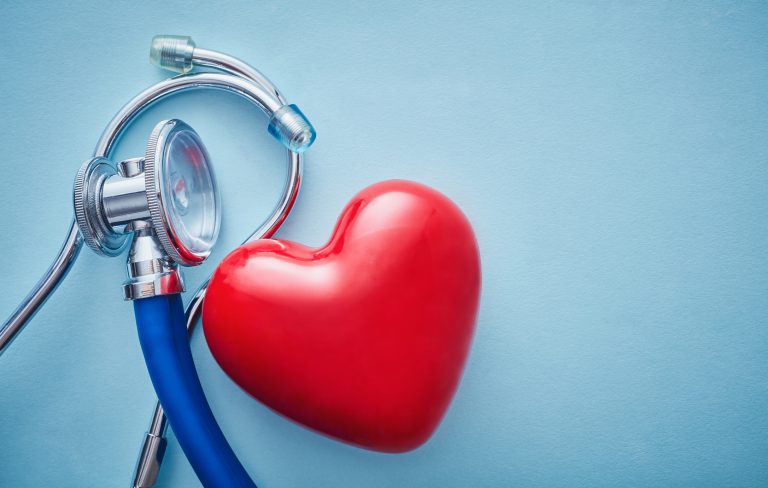Stress was the common denominator last year, and while we can begin to see the light at the end of the tunnel, normalcy isn’t entirely yet visible – if we ever return, as we remember it, to the state of what life was like.
But it wasn’t just last year, this year is proving to be just as challenging mentally and emotionally, and there isn’t a vaccine for that. Entering year two of the pandemic with the effects of isolation and exhaustion impacting every generation have been the ultimate primer to managing stress. Each day we’re trying to remain intentional about eating well, moving our bodies, calming our minds, and loving others well. We’re all just doing the best we can.
Life was moving at tremendous speeds before the pandemic, and stress has long played a prominent role in contributing to health problems, including heart health and steadily deteriorating well-being. If we accept pre-pandemic normal to be 55% of stressed Americans, we may not want to return to certain parts of our former lives. We’re a stressed-out nation.
Types of Stress
Not all stress is bad for you; there is a form of good stress, eustress, that is beneficial. Eustress is the type of excitable stress when our heart rate increases, and our hormones rise. You feel eustress when riding a roller coaster, while on that first date, or sledding down that big hill. It’s good stress that keeps us healthy and happy.
Acute stress is what we typically feel when a critical deadline didn’t get extended, we’re stuck in traffic, we woke up late, or we didn’t sleep well, and nothing seems to be going right in our day. While we’re feeling uncomfortable at the time, we’re able to relax relatively quickly and return to homeostasis. This type of stress, while challenging, can be resolved once the stressor has been overcome.
Then there is chronic stress; as we continuously face stressors that feel inescapable and weigh on us, this extreme stress occurs. Our bodies cannot handle chronic stress, and there may be physical and emotional health effects, including an increased risk of heart disease, if sustained for a prolonged time.
How Stress Affects the Body
Our bodies will respond with a collection of changes known as a stress response to deal with the oncoming triggers. Those changes include:
An increased heart rate and blood pressure
The release of cortisol and adrenaline
Breathing faster
Tense muscles
More reactions designed to protect you in an emergency
But what if the stressor doesn’t go away? The response will continue, and your fight or flight response remains activated and will eventually take its toll on the body. Research shows that constant stress leads to elevated blood pressure, facilitates the production of artery-clogging deposits, limiting or reducing blood flow to the heart, obesity, weakening of the immune system, and induces changes in the brain that can lead to anxiety, depression, and addiction.

How Chronic Stress Specifically Affects the Heart
Chronic stress affects your heart in multiple ways, including elevating your heart attack risk by the repeated increased heart rate and blood pressure that could damage your arteries over time. There’s also an actual condition called Broken Heart Syndrome, which affects only part of the heart, causing it not to pump well. This condition, also called stress cardiomyopathy, arises from extremely stressful emotions and situations, surgery, or illness and can usually be reversed.
Some people may think they are experiencing a heart attack, but a difference distinguishes broken heart syndrome from a myocardial infarction. In general, heart attacks are caused by a full or near-complete blockage of a heart artery. The heart arteries are not blocked in broken heart syndrome, but there may be decreased blood flow, and an intense physical or emotional occurrence is often accompanied by it.
Call 911 or emergency medical help immediately if you have chest pain, an irregular heartbeat, or shortness of breath.
Managing Chronic Stress
Our bodies were not made to endure stress for extended periods; it was designed to deal with the emergency by sounding an alarm, gain our attention, get a reaction, and return to our normal state of being once the stressor is dealt with.
We’ve all read countless articles advising us to breathe more and to exercise, and while that’s excellent advice, chronic stress will take a lot longer than a few hours to heal. You’ve had your body and mind in a state of panic and overdrive for some time, and it will take additional time and intentionality to recover.
Investigate
Stress is everywhere, and at times you’ll operate outside of your comfort zone, but if those feelings of being weighed down linger, it’s time to do a bit of research. Many life events can cause stress, such as holidays, illness, injury, hardship, grief, relationship changes, parenting, changes in work, moving, finances, significant changes, or unusual demands.
When recognizing the source of chronic stress through the emotional and psychological symptoms, be honest and gentle with yourself. What causes you to feel stressed by your worries? What triggers anger, irritability, racing thoughts, difficulties with concentration and memory, or anxiety? When you’ve worked out the stressors, you can take action to minimize or stop them.
Sleep
Sleep is paramount to healing, and there’s no doubt chronic stress has robbed you of countless hours by keeping you awake with worry and the inability to relax – and maybe even with teeth grinding and jaw clenching. If you cannot achieve the recommended 7-9 hours of sleep or require more, don’t let that cause further anxiety. The goal is eventual restorative sleep because the better we sleep, the better we can tackle the day ahead.
Be Selective
If there are too many withdrawals and not enough deposits, you’ll be in a deficit, and if you wear too many hats, there’s a good chance you don’t wear any of them very well. When your days are robotically predefined for you to ensure others’ lives run smoothly and you have nothing left over to give to yourself, it’s time to start setting limits and being selective.
Each time you say yes to something, you say no to something else. Your proverbial plate is only so capable; saying yes to that event you don’t want to attend on the weekend might mean saying no to time that you do want to spend with your family. Saying no doesn’t make you a bad and selfish person, and saying yes all the time can overwhelm you with too much to do. There’s one thing for sure; you cannot be all things to everyone and everything.
If you’re healing from chronic stress, you should doubly consider your options and answer. By opting to heal rather than commit is a smart decision of spending your time and resources wisely. This isn’t your run-of-the-mill stress, and by avoiding further burnout, you can ensure you’ll be there for others when it truly counts.
Quiet the Noise
We’re a connected society; we like to keep our technology close with constant communication. While the buzzes, dings, and rings can be useful for us during the day, they can interrupt our meals, quality time with friends and family, and sleep. The National Sleep Foundation recommends turning off devices one hour before bedtime, but if you’re recovering from chronic stress, it’s beneficial to turn them off hours beforehand.
Quiet your gadgets with the do not disturb, nighttime, or sleep settings and remove your smartwatch at the end of the day. Suppose you are unable to turn off your devices or are afraid of missing an emergency call, you can assign phone contacts to bypass the do not disturb setting by adding those numbers as favorites within your contact list. Those calls and texts will come through by selecting your interruptions. The setup works on both Apple and Android devices.
Find Your Happy
If someone asked you where your happy place is, where would it be? Or maybe this is an activity that you enjoy that takes your mind off of everything else. Happy places are your escape from stress and a reset that gives you feel good emotions. It could be on the couch with fluffy blankets and a good movie, walking in a canopy-covered forest, a busy mall packed with people, or jamming out to a heart-happy cardio session on your Peloton. The possibilities are endless because everyone has their meaning of what defines a place of comfort to them.
Get Moving
At first, exercise may not appeal to you, and the level of strength you once had may feel as though it’s long gone. But there are plenty of perks to exercising; it improves your physical fitness and your mental fitness. Exercise improves sleep quality by reducing stress, and if we’re honest, sometimes a good workout can make us bone-tired by the end of the night.
Do what feels best to you. Right now, exercise may look temporarily different from your previous workouts by choosing a simple walk to the mailbox, swimming, boxing, or strength training – whatever you enjoy and makes you feel comfortable. The goal here is movement, and almost any form of exercise reduces stress while increasing fitness.
Get Professional Help
Sometimes we’ve tried it all, and we still feel stuck in our chronic stressed-out rut. Managing stress and quieting the noise is beneficial, but at times emotional de-cluttering isn’t enough.
It is a sign of courage to seek support, and the first step in feeling better is telling someone you are struggling. When stress becomes a chronic problem and something that feels beyond our control, our mental health will begin to be impacted and can lead to depression. A mental health professional can help get you back on track, and when you’re feeling good mentally, you’ll start to see increased physical health.

Don’t Underestimate Chronic Stress
Traditional risk factors are extremely significant, such as cholesterol and blood pressure, but chronic stress is also a risk factor. There are many studies, including research findings with PET/CT imaging, that have shown that not only is chronic stress a heavy psychological burden, but it is also associated with an increased risk of cardiovascular disease.
The relation between mental and physical health can not be separated – taking good care of your heart also lies in keeping your emotions and stress levels healthy too.